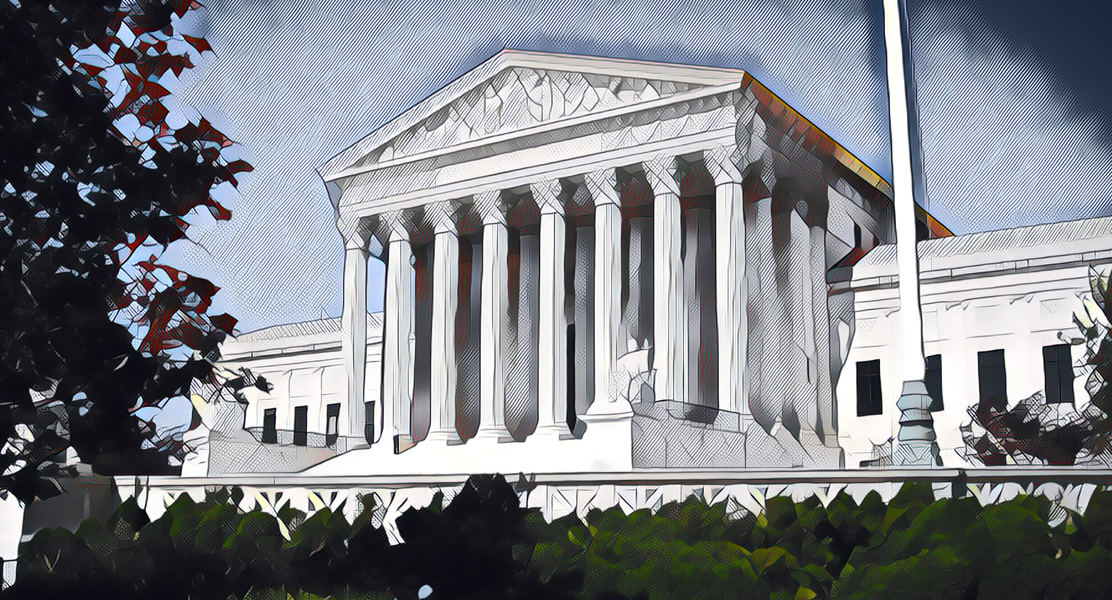Supreme Court issues decisions on religious charter school, exemptions and opt-out rights

By BJC Staff
In what is starting to feel like a yearly tradition, the recent Supreme Court term was another consequential one, with three decisions that have the potential to influence the legal landscape of religious liberty for years to come.
Deadlocked Court denies religious charter school
First, a case that could have changed the trajectory of religious liberty in public schools instead fizzled out in an anticlimactic 1-page, deadlocked, unsigned opinion in May.
The case, Oklahoma Statewide Charter School Board, et al. v. Drummond, dealt with the question of whether Oklahoma could be required to include a religious charter school — St. Isidore of Seville Catholic Virtual School — in its public school system. Such a requirement would force public funding of Catholic education — counter to Oklahoma law — and fundamentally undercut the institutional separation of church and state.
The case began when the Oklahoma Statewide Charter School Board approved the application of the decidedly Catholic school, making it the first religious charter school in the country. The Oklahoma Supreme Court struck down its application, and the case made its way to the U.S. Supreme Court.
The 4-4 deadlock, thanks to the recusal of Justice Amy Coney Barrett, means the lower court decision stands and states cannot be forced to run religious schools.
BJC and other religious groups filed a brief with the Court in April, arguing that our nation’s history of protecting religious liberty for all has required that the government refrain from engaging in or directly funding religious education.
For more on this decision, see BJC General Counsel Holly Hollman’s column in the summer/fall edition of Report from the Capital.
Unanimous SCOTUS focuses on ‘religious purposes’ in exemption
The second of the three cases, Catholic Charities Bureau v. Wisconsin Labor & Industry Review Commission, was a 9-0 unanimous decision.
The June decision held that denying a religious exemption under Wisconsin’s unemployment statute to Catholic Charities Bureau was “textbook discrimination” and a violation of the First Amendment. The state of Wisconsin originally denied the unemployment compensation exemption, finding that Catholic Charities was not “operated primarily for religious purposes.” The reasons included that the charity was neither engaged in proselytization nor serving people only of their faith.
All nine justices disagreed. Wisconsin’s definition of “religious purposes,” they held, was too narrow and discriminated between different faith perspectives in violation of the First Amendment.
The Court reiterated: “‘The clearest command of the Establishment Clause’ [of the First Amendment] is that the government may not ‘officially prefe[r] one religious denomination over another.’”
“The Court’s ruling affirms that religious exercise includes service-based ministries, not just worship or proselytizing,” Hollman said. “Religious liberty is best secured when accommodations are tailored, fair, and sustainable.”
Court says parents have opt-out right from school instruction interfering with religious upbringing
Finally, in a controversial case about public education and LGBTQ+ inclusion, the Supreme Court sided with a group of parents seeking notice and the opportunity to opt their children out of public school curriculum that conflicts with the parents’ religious beliefs.
The dispute central to Mahmoud v. Taylor arose after the Montgomery County (Maryland) Board of Education decided to withhold parental opt outs (after first allowing them) from curriculum involving LGBTQ+ inclusive stories in their children’s elementary school.
In its 6-3 ruling, the Court said stories for young children that celebrate same-sex marriage and affirm transgender identity are both “hostile” to parents whose religious beliefs reject those ideas and coercive to their children. The decision grants a preliminary injunction, which entitles parents in that school district to receive both notice and the ability to opt out.
The ruling emphasized that it does not take a stance on the educational value of the storybook program or on the school board’s stated goals of teaching children to learn to live together in a multicultural society. The opinion also does not confer on parents a general right to control curriculum according to their religious beliefs.
“[This] decision recognizes the importance of religious formation in the lives of children and the heavy responsibility of public schools to serve all families,” Hollman said. “This decision does not provide a general right to veto or reshape public school curriculum based on religious objections or to undermine the educational mission of public schools and the shared civic space they represent.”
For more, BJC’s Respecting Religion podcast discussed all three of these cases during season 6:
- Oklahoma religious charter school case: oral arguments in episode 14 and the decision in a LIVE episode released May 27
- Catholic Charities Bureau v. Wisconsin Labor & Industry Review Commission : oral arguments in episode 12 and the decision in the case in episode 16.
- Mahmoud v. Taylor: oral arguments in episode 15 and the decision in episode 18, which was the season finale.
This article originally appeared in the summer/fall 2025 edition of Report from the Capital. You can view it as a PDF or read a digital flip-through edition.




